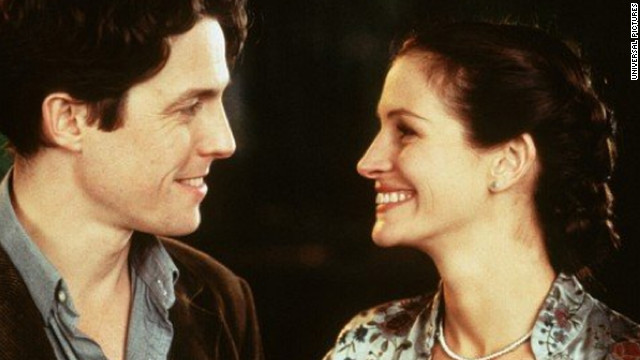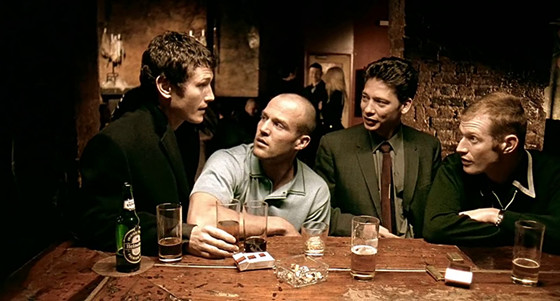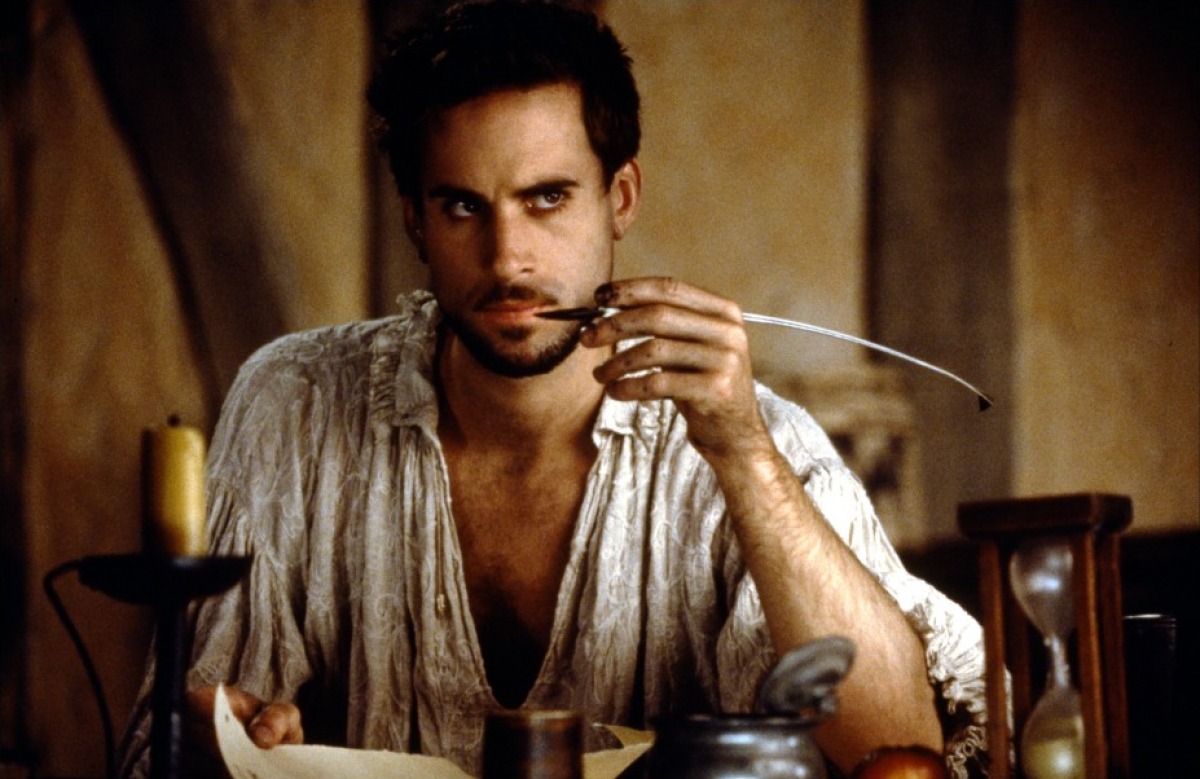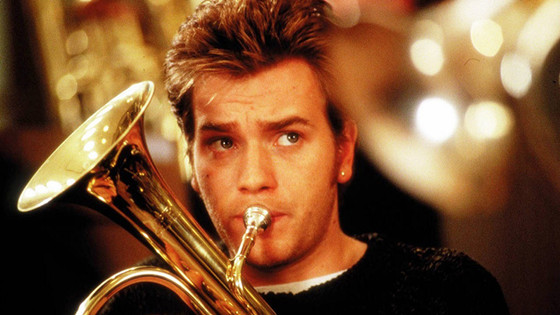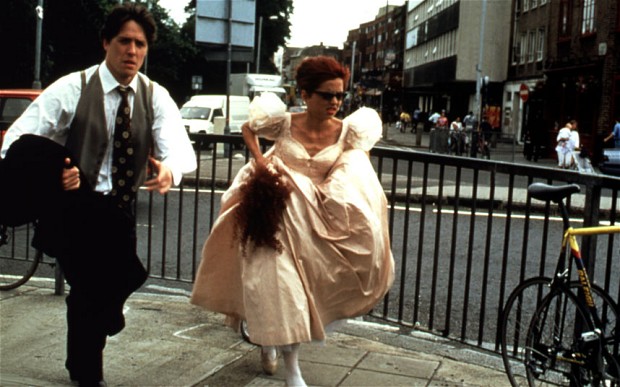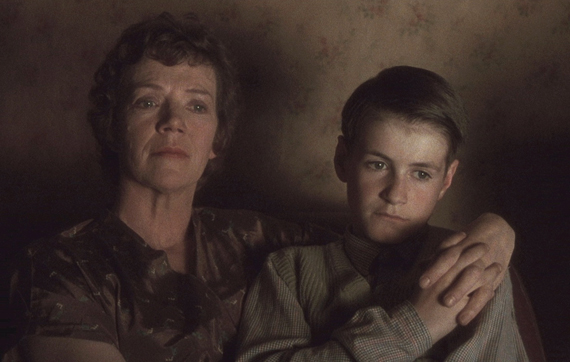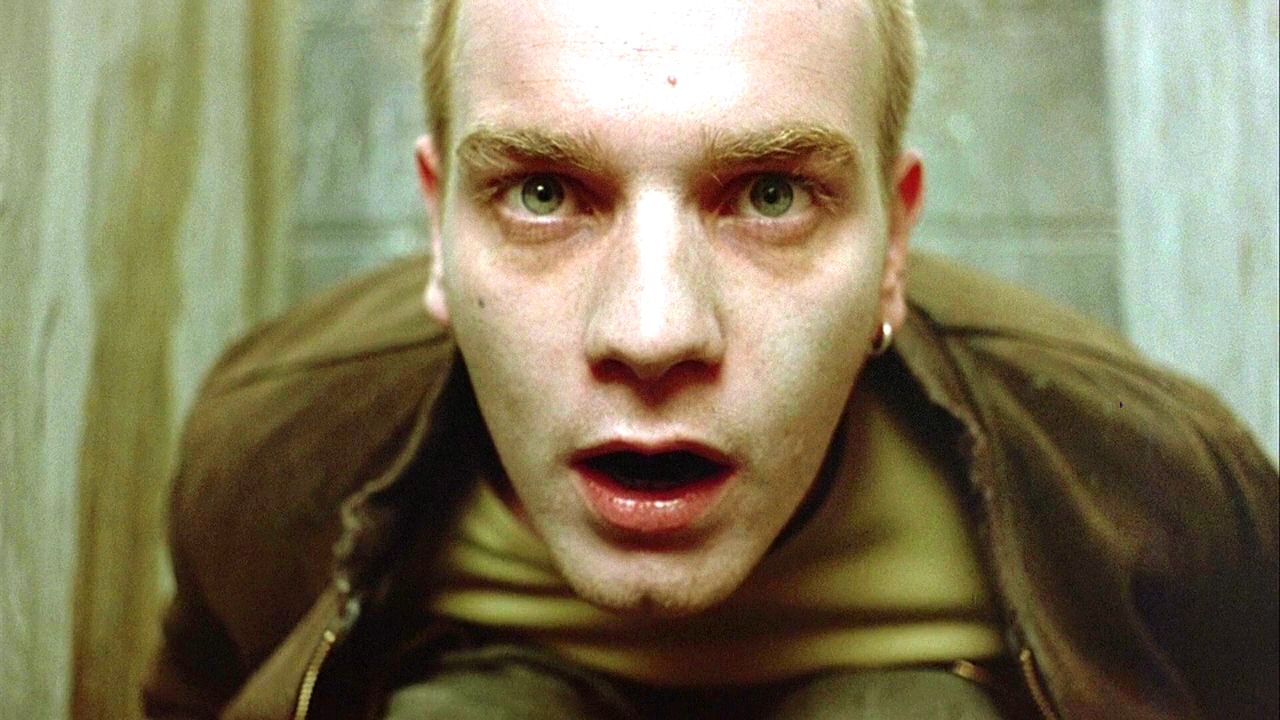
British film in the 90’s began much the same way as the 80’s had ended with few opportunities to gain what little funding was available.
To appreciate the films of the decade, the 90’s can be understood as a game of two halves, roughly splitting into grittier more socially conscious films of the early half of the decade and the more colourful and arguably better known (and better funded) films which came in the wake of a certain release in 1994. Here are 15 films charting British cinema in the 1990’s.
15. Shopping (1994)
Written and directed by Paul W.S Anderson (now better known for the Resident Evil films), this action/crime thriller is now perhaps best recalled for providing Jude Law with his first cinematic lead role, more notably as he co-stars alongside his future wife Sadie Frost.
Delinquent youth Billy (Law) has little in life beside the thrill of stealing a high performance car and going ‘shopping’ by ram-raiding the car through a shop window and leaving with the proceeds. To his underworld friends, including girlfriend Jo (Frost), Billy is a hero, but now Jo wants him to go straight. Billy wants one more bit hit – the local shopping mall as no one has ever tried it before. This brings him to the attention of ‘rival’ and gangster Tommy (Sean Pertwee).
Although set in a dystopian ‘near future’, Shopping has its foundations rooted firmly in a grim early 90’s recession beaten Britain which many retrospectives now forget. Youth lawlessness such as joyriding in stolen cars and ram-raiding were making headlines as national buzz-words, so much so that the film’s depiction of these crimes attracted controversy which restricted its release. The film itself has a convincingly dark post-industrial nether-world feel to it, even if the story lacks the slick finish it perhaps aspires to.
The cast and the pace help to provide a youthful vigour which keeps the narrative rolling. Released in June 1994, after Four Weddings, the film’s hairstyles, its clothes and its dark ‘social realism’ were passing from popular fashion. It deserves further recognition as an interesting time-capsule and curio as to what low-budget direction British Cinema may have continued in had Curtis’ film not being the success it was.
14. Notting Hill (1999)
Richard Curtis’ much anticipated follow up to Four Weddings and a Funeral.
Will Thacker (Hugh Grant) owns and runs a travel bookshop in Notting Hill, London. One day U.S film star Anna Scott (Julia Roberts) wanders into his shop, shortly afterwards he accidentally bumps into her in the street; spilling a drink on her, Will invites her to his nearby home to clean up. Anna is grateful and leaves Will with a kiss.
Later Will’s eccentric housemate Spike (Rhys Evans) informs him that Anna left a message for him to meet her. A cycle of will-it-won’t it work begins involving awkward meetings with Will’s ‘everyday’ friends (played by Hugh Bonneville, Gina McKee & Tim McInnerny) and his sister (Emma Chambers), along with Will having doubts and the return of Anna’s famous boyfriend.
Never as recognised as its headline grabbing predecessor, Notting Hill offers up much of the same now familiar ‘rom-com’ formula Curtis is known for. However, it can be regarded as a more polished work, the sketch like sequences are gone and there’s less of a fragmented feel to the narrative. The film bears comparison with 1953’s Roman Holiday in which a reporter becomes involved in a dreamlike romance with a lonely princess, a similarity acknowledged with the press conference at the film’s climax – although the eventual outcome is somewhat different.
13. Lock, Stock and Two Smoking Barrels (1998)
This crime thriller saw writer and director Guy Ritchie shoot to instant recognition. Also co-written by Peter Cattaneo (director of the Full Monty) sees Eddy (Nick Moran) and his friends Bacon (Jason Statham), Tom (Jason Flemyng) and Soap (Dexter Fletcher) rack up a debt of £500,000 in a card game rigged by a local mobster. The friends turn to robbing a neighbouring flat of their marijuana crop – a heist which sees them intertwine with the exploits of various gangsters.
Much hyped on its release, the film received much praise as the best British gangster film since The Long Good Friday in 1979. In many ways, with its memorable criminal characters (ex-footballer Vinnie Jones features) and interwoven plot it can be viewed as a British answer to Pulp Fiction. The film received finance from a string of sources including Handmade Films. Punchy and memorable, the cult film also spawned a spin-off TV series ‘Lock Stock…’ broadcast in the U.K on Channel 4 in 2000.
12. Shakespeare in Love (1998)
A U.K/U.S co-production directed by Brit John Madden (who had directed Queen Victoria film Mrs Brown the previous year), written by American Marc Norman and co-scripted by playwright Tom Stoppard.
The fictionalised plot follows William Shakespeare (Joseph Fiennes) as he embarks on an affair with Viola de Lessepes (Gwyneth Paltrow) during his writing of the play that will become Romeo and Juliette. A treat for Shakespeare buffs, the film features various lines that will/have been used in many of his plays. Colourful and fun, if not historically accurate, this romantic comedy drama originally went into production in 1991 directed by Edward Zwick and set to start Julia Roberts as Viola.
However, production fell apart before shooting after Daniel Day Lewis didn’t take up the lead role as intended – leading Roberts to pull out. Zwick brought in Stoppard – in the wake of the film of his play Rosencrantz and Guildenstern are Dead – persuading Miramax to take up the project but being dropped as director.
Madden’s finished film was re-edited and reworked with some scenes being re-shot following various audience test screenings. The conscious historical inaccuracies in behaviour and fact can be considered as in tune with the anachronisms of Elizabeth released in the same year.
11. Brassed Off (1996)
Written and directed by Mark Herman, the socio-political issues at the film’s heart can in many ways be considered a pre-cursor to the Full Monty a year later.
Set in the small South Yorkshire village of Grimley (based on the real village of Grimethorpe devastated by the coal mining pit closures of the 80’s ), Gloria (Tara Fitzgerald) returns to the village to assess the profitability of the local pit. Glora rekindles a romance with Andy (Ewan McGregor). Elsewhere in the village, Danny (Pete Poslthewaite) is struggling to keep up sprits by keeping the community’s brass band together. Ultimately, the pit is closed but the band go on to win a national brass band competition.
Despite how it may sound, the film is, arguably, not overtly political, it proved to be a surprise success as a comedy in the U.K and as more of a Rom-con in the U.S (something reflected quite strikingly in the film’s posters). The real Grimethrope colliery band feature on the film’s soundtrack.
10. Four Weddings and a Funeral (1994)
Released in the U.K on May 14th 1994, this popular comedy written by Richard Curtis and directed by Mike Newel seemingly single-handedly changed the fortunes of British Cinema.
The plot follows the lives of several middle/upper class 30-something friends through four weddings and a funeral with a focus on the blundering Charles (Hugh Grant) who becomes infatuated with American, Carrie, (Andie McDowell). Adopted by Polygram as a vehicle for McDowell, the film was a hit on both sides of the Atlantic and made a star of relative unknown Hugh Grant also featuring a supporting cast of now extremely familiar Brit actors including Simon Callow, James Fleet, Kristen Scott Thomas, John Hannah and Charlotte Coleman.
The script began life with Film Four who almost abandoned the project owing to cost until Working Title (in league with heavy investment from Polygram) stepped in. Working Title’s 1989 film The Tall Guy (also written by Curtis) had proved a moderate success for the company who had faith in Curtis’ new script.
Released in the U.S before the U.K, the infamous expletives at the film’s opening were actually the result of a script alteration tailored to suit the American market. Curiously, the concept of several old university friends meeting amid the backdrop of the English countryside had been explored two years earlier in Brit comedy Peter’s Friends, which plays a little like a foundation for Four Weddings.
In retrospect, Four Wedding’s slightly sketch-based moments, such as Rowan Atkinson’s nervous vicar and Charles’ ‘looking for a pen’, jar in places but it remains a colourful journey with likeable characters. Every Brit comedy (and there were many) released in its wake had to tagged with the quote ‘the funniest film since Four Weddings’ – the sun (and the money) was finally shining on British Cinema.
9. The Long Day Closes (1992)
It would be easy, and careless, to dismiss Terence Davis’ (seemingly forgotten) film as another love letter to cinema – the opening featuring a sound bite from The Ladykillers. This film is far more than that, a semi-autobiographical tale based on the director’s childhood in 1950’s Liverpool.
11 year old Bud (Leigh McCormack) is the sensitive youngest child of a fatherless working class family. Spending his time visiting the cinema, Bud escapes into a fantasy world, away from the reality of the outside world. At the same time, Bud is also awakening to the sexual interest he finds in men.
This is a film with no overtly driving narrative; it drifts into a series of memorable anti-realist/fantasy images screened against a rolling score capturing Bud’s moments of escapist wonder and looming religious guilt.
The image of Bud (a young boy) holding a touch to the sky or sitting in the light of the projector creates a resemblance to 1990’s Cinema Paradiso – perhaps overshadowed this is one of the reasons the film remains less well known than it is. The mix of burgeoning homosexuality, religion and musical score also makes this film oddly reminiscent of Alan Clarke’s 1974 ‘play for today’ Penda’s Fen.

